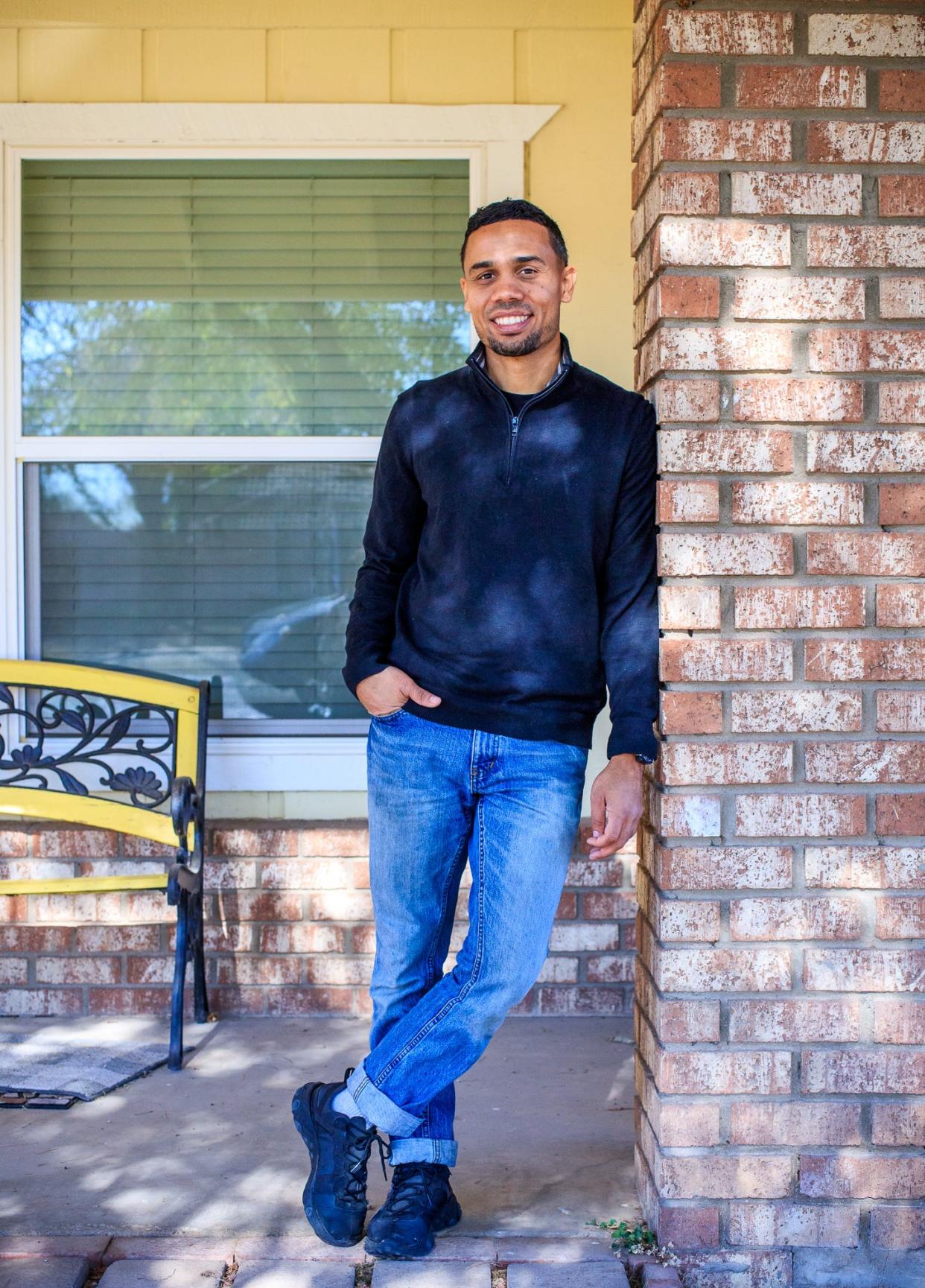‘I don’t feel worthy’: The intimate impact of broken adoptions in the US

There was no safety net for Anthony Thornton when he walked out of his adoptive home six weeks before his high school graduation.
The Texas teen was on his own, left with nothing but two trash bags full of clothes.
Thornton told USA TODAY he had always been uneasy about being adopted. His siblings had been adopted out of foster care years earlier, but he resisted. Agreeing to it felt like a betrayal of his biological mother.
“There’s still relationships,” he said. “There’s still love and caring and kindness. And, you know, amid that toxicity and tumultuous living, it’s still your family.”
But at 14, Thornton said he felt he had a decision to make: agree to be adopted by his foster parents or run the risk of having to move elsewhere.
The home didn’t seem a perfect fit. With a dozen other children in the family, Thornton sometimes felt lost. He thought the biological children were treated better. And Thornton chafed at restrictions imposed in the home – having to ask permission to eat, go to the bathroom, watch TV or use a phone.

Adoption resources: A guide to support groups, mental health services
Thornton knew it might be difficult for officials to find another foster home for him because of his history of fights and rebellion. He feared he would end up in a group home or institution. And, most important, Thornton didn’t want to be separated from two of his biological siblings who also lived there.
So he said yes to adoption.
Thornton told USA TODAY his parents kicked him out about four years later, in 2007, when he left home without permission after an argument. Gary and Trisha Thornton have a different perspective, saying their son left home voluntarily and was never told not to come back.
The couple said they ran a strict household by necessity. They operated a group home, caring for foster youth who had interacted with the juvenile justice system or spent time in residential treatment facilities. At one point, there were 14 kids in the house.
“I’m not saying that we did it right all the time,” Gary Thornton said. “But I felt like our hearts were in the right place.”
A USA TODAY investigation found that while the majority of adoptions in the U.S. remain intact, tens of thousands of adoptees like Thornton suffer the collapse of not one but two families: their birth family and their adoptive family.
More than 66,000 adoptees ended up in the foster care system between 2008 and 2020, according to a first-of-its-kind USA TODAY analysis of federal and state data.
On average, 12 adoptions failed every day. And that is an undercount.
While adoptees who enter foster care have access to housing and other financial assistance, adoptees like Thornton — whose failures occur outside the purview of the system — have no such support. Often, they are left to fend for themselves.
Thornton struggled. The 18-year-old bounced among friends’ homes, never in one place for long.
About a year later, in desperation, he called the attorney who had helped facilitate his adoption, asking if the adoption could be annulled so he could reenter foster care and get help with housing, food and health insurance.
You don’t want to do this, he said the attorney told him. It’s just a hard time in your relationship right now.
Thornton said he survived by suppressing his emotions, focusing on work and school. For years, he awoke screaming from nightmares about seeking his adoptive parents’ acceptance and affection.
Even in his closest relationships, Thornton hasn’t entirely felt comfortable.
“I don’t feel worthy,” he said. “I don’t feel trusting. I don’t feel connected. I don’t feel like I belong.”
He was driven to succeed when, at 19, he learned he would become a father. With the support of friends and his now-wife, he found work and earned his bachelor’s degree in psychology and master’s in social work. Today, a father of three with a fourth on the way, he is nearly finished with his doctorate in social work from Arizona State University.
SUBSCRIBE: Help support quality journalism like this.
Thornton conducts research at the university’s Center for Child Well-Being and is clinical director of outpatient services for an Arizona behavioral health services agency.
After years of separation, Thornton and his adoptive parents have reconnected. Gary and Trisha Thornton said they are heading to Arizona later this month to be with their son and his family when his child is born.
Anthony Thornton wants to help children in situations like the one he lived through. The government, he said, needs to invest more in families upfront and it needs to ensure adoptive parents remain engaged when their children face challenges.
“There will always be a child welfare system,” he said. “And I think there will always be a need for a child welfare system. But can we do better? Yeah, absolutely.”
Marisa Kwiatkowski and Aleszu Bajak are reporters on USA TODAY’s national investigative team. Marisa can be reached at mkwiatko@usatoday.com, @byMarisaK or by phone, Signal or WhatsApp at (317) 207-2855. Aleszu can be reached at abajak@usatoday.com, @aleszubajak or by phone or Signal at (646) 543-3017.
Help USA TODAY investigate adoption
Are you an adoptee, parent, community member or public and private employee who can help us learn more about adoption issues? We want to hear from you about disrupted and dissolved adoptions.
More in this series
‘A broken system’ leaves tens of thousands of adoptees without families, homes
This article originally appeared on USA TODAY: Broken adoptions can leave a lasting impact: ‘I don’t feel worthy’

 Yahoo Movies
Yahoo Movies 
